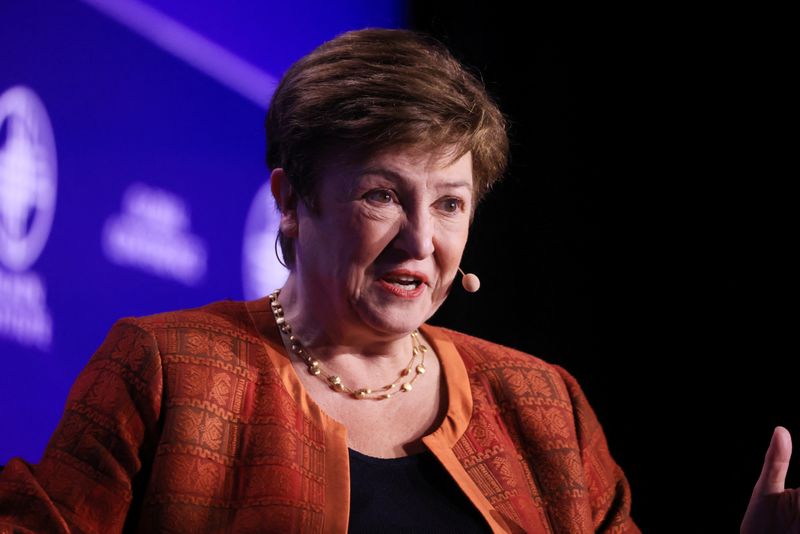By David Lawder
WASHINGTON (Reuters) - International Monetary Fund Managing Director Kristalina Georgieva told Reuters on Thursday that China is too large to continue relying on exports to drive its economy and faces dangerously slower growth unless it shifts toward a consumer-driven economic model.
Georgieva told Reuters in an interview that China's growth could fall below 4% in the medium term if it stays on its current path, a level "that is going to be very difficult for China. It's going to be very difficult from a social standpoint."
Speaking ahead of IMF and World Bank annual meetings in Washington, where growing trade tensions over a major flood of Chinese exports will be a hot topic, Georgieva said IMF research shows that China could grow at a significantly higher pace if it makes changes to give its consumers the confidence to spend more.
"China's at the fork in the road. If they continue with their current model, which is export-led growth, there would be trouble. Why? Because the Chinese economy has grown to a point where China's exports are no more a minor factor in global trade," Georgieva said.
Beijing can no longer "rely on some miracle that would retain an export-led model in this large economy as a viable vehicle," she added.
Georgieva said that China's recent announcement of fiscal stimulus plans were "in the right direction," with the aim of reviving consumer confidence shattered by a years-long real estate crisis.
Lack of Chinese domestic demand has diverted more Chinese manufacturing output to exports, leading the U.S., Europe and others to raise tariff barriers to protect their workers and companies in sectors such as electric vehicles. Republican presidential candidate Donald Trump has vowed to imposed tariffs of 60% or more on imports from China and 10% on those from other countries.
Georgieva said the IMF was still assessing how far the latest Chinese measures would go, but added that deeper reforms are needed to convert China's economy to one led by consumption. These include pension reforms, erecting a social safety net to reduce the need for massive precautionary savings, and investing in underdeveloped sectors of the economy including healthcare and education.

Asked about recent comments from a U.S. Treasury official that the IMF is "too polite" when it comes to pushing China on industrial policy and exchange rate policy, Georgieva disagreed, saying that the Fund has long called for reforms of subsidies in China and the need to put state-owned enterprises and private companies on an even footing.
"We have always been saying it as we see it," Georgieva added.